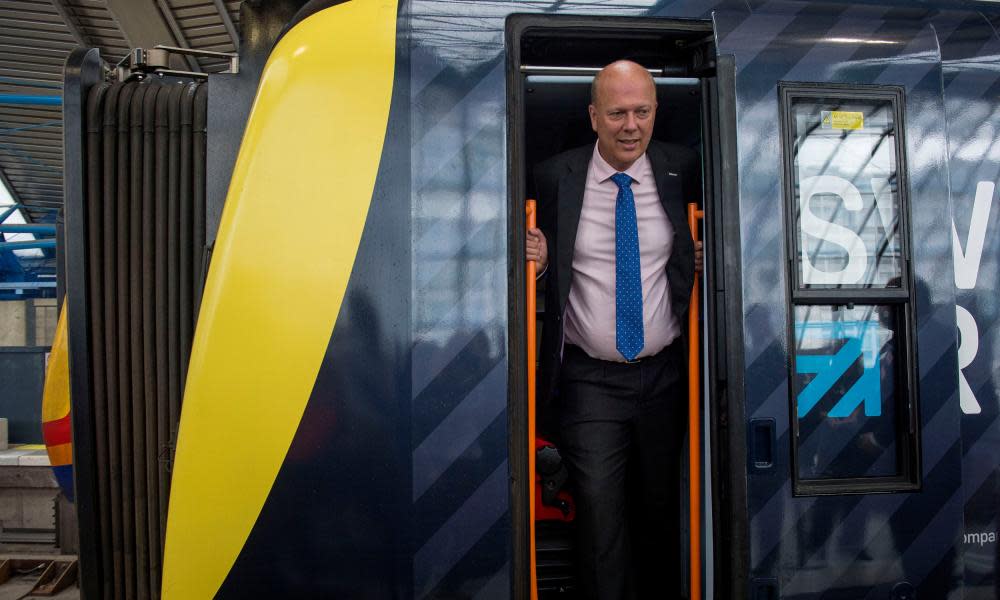Grayling’s on a siding to nothing with railways and Chequers

The “sweeping review” of the rail system (Sweeping review, same old broom, 21 September) appears not to identify the gross regional disparities in infrastructure funding across different parts of Britain. This despite the outcry when electrification of train lines in the north was delayed at the same time that further huge investment was announced in the south-east.
The imbalance was further revealed when, last week, it became clear that the much-heralded new trains for the east coast line will only be able to reach the planned high speeds in the south, because the older infrastructure in the north is incompatible with the demands of the electrification system of the new trains; so beyond Doncaster, the power will have to switch to diesel and speeds will be lower.
The report on recent rail chaos only highlights two companies. But, in the north, TransPennine Express is daily cancelling a significant minority of trains due to lack of drivers. We need a radical review to overhaul this dysfunctional industry.
Sheila Cross
Newby Wiske, North Yorkshire
• Chris Grayling’s staunch defence of the Chequers agreement is alarming (Report, 21 September). If he, fresh from his signal success with the railways, is the government’s most credible spokesperson, then we really are doomed. He is a wonderful example of why our political class cannot be trusted with sovereignty.
The railway fiasco should serve as a powerful illustration of what Brexit is in practice: an unworkable system run on fantasy lines with no care for the people who have to use it.
Dave Hepworth
Rowland, Derbyshire
• Chris Grayling claims that it is “tough for any politician to overrule the advice of the professionals” (Don’t blame me for rail chaos, blame the system – Grayling, 21 September). That didn’t stop him, as justice secretary, overruling the advice of the professionals who warned him that his plan to break up and part privatise the probation service would have catastrophic consequences. Turns out that, unlike the rail professionals, they were right.
Peter Lock
Woolton, Liverpool
• Chris Grayling opines that it was tough for any minister to overrule the advice of the professionals. What are ministers for, then? If further proof were needed that the age of the decent and dutiful resignation is over, this is it.
John D Walsh
Swindon
• A couple of decades ago I was managing a programme of environmental improvements in and around Birmingham. I met six project co-ordinators once a month and we compared progress of the last four weeks against what had been agreed as a target the previous month. I am happy to let Chris Grayling have a copy of the pro-forma chart that I devised to do this.
Marcus Cleaver
Malvern, Worcestershire
• What a disappointingly incoherent analysis of the railways by Simon Jenkins (Fragmented railways will never work, public or private, 21 September). So “Britain’s trains are a fashionable but minuscule transport mode” are they? What is “fashionable” about the need to travel to work? How many more cars would he like to put on our roads?
David Goddard
Hove, East Sussex
• Even Hornby know that a train set has rolling stock and track in the same box.
Mike Perry
Ickenham, Middlesex
• Join the debate – email guardian.letters@theguardian.com
• Read more Guardian letters – click here to visit gu.com/letters
• Do you have a photo you’d like to share with Guardian readers? Click here to upload it and we’ll publish the best submissions in the letters spread of our print edition

 Yahoo News
Yahoo News 
